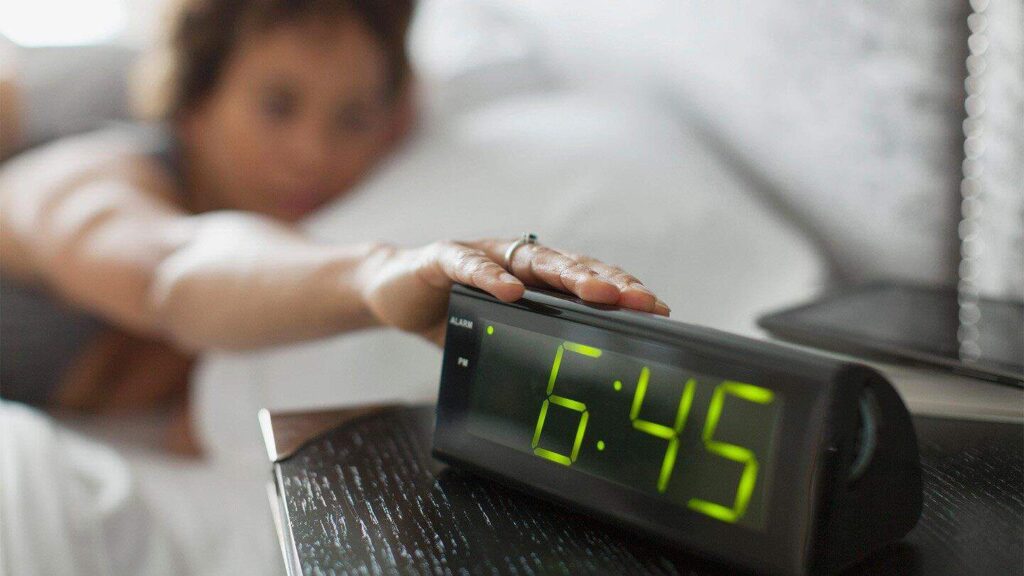Despite our best efforts, some of us aren’t getting the quality sleep we need, even if we may think we are. Many of us wake up and wonder why we still feel tired even after getting the recommended 8 hours of sleep. And while we’d like to attribute it to some unknown phenomenon, the truth is that our own habits are getting in our way.
Habits like eating or drinking before bed can disturb our sleep cycles, so maintaining good sleeping habits, or sleep hygiene, is crucial in ensuring we get a good night’s sleep. Bad sleeping habits amount to more than just feeling tired all the time. Bad sleeping habits can affect energy levels, mental health, and mood and can lead to chronic conditions like insomnia, which can cause additional health problems.
We all have sleepless nights; stress from work or a traumatic life event is bound to keep us up on occasion. While sleepless nights are normal, they can interfere with daily life if they persist.
If you find yourself regularly struggling to fall asleep at night or still feeling tired after waking up, you may need to take some of the following steps towards improving your sleep hygiene.
Have a consistent sleep schedule
Sleeping and waking at different times can disturb your body’s circadian rhythm, meaning your body’s internal clock gets thrown out of sync. If your life allows for it, try to get to bed at the same time every night. Over time, your circadian rhythm will recalibrate, and sleep problems should subside.
Exercise regularly
We burn off energy while exercising, so we’re bound to feel more tired at night. In addition to physical health benefits, exercising can help clear your head and alleviate the stress that may be keeping you up at night. Exercise causes a rush of endorphins to the brain, so avoid exercising within two hours of when you plan to sleep.
Create a comfortable sleep environment
You should feel comfortable and relaxed in your bed. Make sure you sleep on a quality mattress and choose pillows that feel comfortable to you.
Avoid using your room or bed for anything other than sleep if possible. Regularly working from bed causes the body to subconsciously associate your bed with work rather than rest, making it difficult for your body to relax while in bed.
Lighting candles or playing soft music before bed might help you decompress after a long day. Yoga or other relaxation exercises can help you wind down as well.
Try to make your room as dark as possible and filter out as much noise as you can, as even the smallest distractions can interfere with sleep.
Limit caffeine and nicotine intake
Caffeine and nicotine are perhaps the most widely abused drugs out there. Both are stimulants, and both can keep you up at night if you consume too much. Limit yourself to two servings of caffeine per day and avoid consuming caffeine past noon. Limiting tobacco and nicotine intake can also improve sleep quality.
Limit or avoid alcohol
Alcohol is a depressant, so it helps some people fall asleep faster. However, it interferes with sleep cycles, preventing you from reaching deep sleep stages and causing you to wake up during the night. Try not to drink alcohol 4 to 6 hours before going to sleep and resist the urge to reach for a nightcap; it will benefit you in the long run.
Limit screen time in the evening
Devices like smartphones and computers emit large quantities of blue light. Blue light is known to stimulate the brain and keep us awake by tricking our bodies into believing it’s daytime. You can mitigate the issue by changing your phone’s settings or installing apps that filter out blue light, but the best option is to pull away from screens entirely at least two hours before bed.
Avoid eating before bed
Eating meals before bed can lead to poor sleep quality and can disturb your hormones. Eating at night can slow the body’s release of sleep-inducing chemicals like HGH and melatonin. That said, some foods have more adverse effects than others. Some studies have found that high carb meals help people fall asleep faster. Just don’t consume them too close to bedtime.
Monitor for sleep disorders
If changes in sleep habits don’t improve your sleep quality, consult your doctor; you may have an underlying sleep disorder like sleep apnea. Sleep apnea lowers sleep quality because it interrupts breathing, causing people to wake up more frequently. In this case, your doctor may recommend medications or supplements to help induce sleep.
Limit daytime naps
Long naps can interfere with your sleep cycle. Avoid napping if possible, but if you choose to nap, limit yourself to 30 minutes of sleep and try not to nap in the evening.
Reduce stress
Stress and anxiety are large contributors to poor sleep. While it’s not always possible to control our stress levels, we can try to pull away from stressful situations. Relaxation techniques like meditation or journaling before bed can help reduce stress before sleep.



